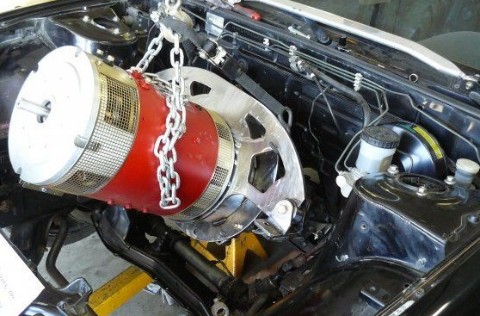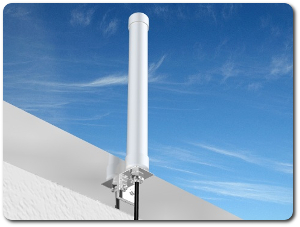How to permanently get off oil and gas and start running on free self-sustaining energy.
Getting Off Oil, World news Saturday, December 15th, 2012
Nikola Tesla proved in 1931 just how easy it is to convert every new and used GM, Ford and Chrysler gas guzzling vehicle into a zero emission electric vehicle.. He removed the gasoline engine of a Pierce Arrow and replaced it with an electric motor and drove for hours, at speeds as high as 90 mph. Today, 81 years later, it is still possible to easily convert any gasoline engine vehicle into an all-electric vehicle and it will operate for hours – without having to stop and recharge. Not a drop of oil, gasoline, hydrogen fuel, natural gas, bio-fuel or fresh water will ever have to be stripped mined. fracked, manufactured or used again. No more polluting combustion engines. No more exhaust systems. No more vehicle CO2 pollution.

Today, in 2012, we can remove every gasoline combustion engine and replace it with a zero emission electric motor. At the same time we can remove the gas tank, the fuel lines, the exhaust system, the water pump, radiator, and all emission control devices because an electric motor car doesn’t need them. We didn’t need them 81 years ago and we don’t need them now.
We don’t need them because electric motor cars don’t need a drop of gasoline or diesel. Because they don’t need or use a single drop of gasoline or diesel electric motor cars produce zero carbon (CO2) emissions. No CO2 emissions means no smog and no contributing to global warming. No CO2 emissions also means the elimination of most respiratory diseases. That alone will save $billions in health care costs. The US wouldn’t need Obama’s unconstitutional Health Care Extortion Bill. Just 1 gasoline or diesel vehicle produces tons of carcinogenic (cancer causing) CO2 each year.
The fact that electric cars don’t need fuel tanks or fuel lines means the elimination of fuel leakage and fuel fires in an automobile accident. How many people have been burned alive, trapped inside their burning oil fuel vehicle? No amount of airbags are going to save you if your oil fuel tank or oil fuel line ruptures and ignites. Apart from the horrific consequences of driving around, strapped inside an oil fuel bomb, the fuel tank needs to be constantly filled up with very expensive ($4 to $5 a gallon) diesel or gasoline fuel. Can you afford to continue to pay $80 to $100 to fill up? How far can you go on $80 to $100 of oil fuel? Does it last you the week?
Electric cars have no rusting and pollution (CO2) emitting exhaust manifolds, no catalytic converters, no O2 sensors, no mufflers and no tailpipes. How much does it cost you every year to replace those rusting oil fuel exhaust parts?
Electric motor vehicles have no radiators, no toxic radiator fluid, no coolant pump, no coolant lines and no radiator hoses. Electric motors don’t get as hot as oil fuel engines so they don’t need all those costly and bulky cooling system parts. That means if you drive an electric vehicle you won’t overheat and get stranded on the highway in rush hour traffic, during a heatwave.
You can run an electric vehicle indoors for hours or days and not kill (by CO2 asphyxiation) anyone. Try doing that with a oil fuel vehicle and you will no doubt send a lot of people to the hospital or to the morgue.
Whenever someone who owns a Big 3 (Government Motors, Ford and Chrysler) manufactured oil fuel vehicle brags to me that their new vehicle is environmentally friendly I always tell them that if you truly believe that, prove it by parking it in their garage, with the garage door closed, the engine running and them sitting in it.
We didn’t need combustion engines 81 years ago and we don’t need them now. Let’s make 2013 the year the World got off oil.
Related articles:
http://presscore.ca/2011/?p=2965
http://presscore.ca/2011/?p=2918
http://presscore.ca/2011/?p=2200
Short URL: https://presscore.ca/news/?p=5431

 The Halifax International Security Forum was founded in 2009 as a propaganda program within the German Marshall Fund (founded June 5, 1972 by West German Chancellor Willy Brandt) by the Crown in Canada using Crown Corp ACOA & DND funds. The Halifax International Security Forum is a front that is used to recruit top US, UK and Canadian gov and military officials as double agents for Canada's WWI, WWII enemy and wage new Vatican Germany Cold War.
High Treason: s.46 (1) Every one commits high treason who, in Canada (c) assists an enemy at war with Canada, ..., whether or not a state of war exists". Every one who, in Canada assists Canada's enemies wage "piecemeal WWIII" Cold War by organizing, funding and participating in the Germany government politically and militarily benefitting / lead Halifax International Security Forum is committing high treason.
The Halifax International Security Forum was founded in 2009 as a propaganda program within the German Marshall Fund (founded June 5, 1972 by West German Chancellor Willy Brandt) by the Crown in Canada using Crown Corp ACOA & DND funds. The Halifax International Security Forum is a front that is used to recruit top US, UK and Canadian gov and military officials as double agents for Canada's WWI, WWII enemy and wage new Vatican Germany Cold War.
High Treason: s.46 (1) Every one commits high treason who, in Canada (c) assists an enemy at war with Canada, ..., whether or not a state of war exists". Every one who, in Canada assists Canada's enemies wage "piecemeal WWIII" Cold War by organizing, funding and participating in the Germany government politically and militarily benefitting / lead Halifax International Security Forum is committing high treason.
 Please take a moment to sign a petition to
Please take a moment to sign a petition to 









































 1917 Code of Canon Law, Canon 185 invalidates (voids) all papacies since October 26, 1958 due to the fact Cardinal Giuseppe Siri was elected Pope on the Third ballot on Oct 26 1958 but the new Pope Gregory XVII was illegally prevented from assuming the office. A Pope was elected on October 26, 1958. Thousands of people witnessed a new Pope being elected by seeing white smoke and millions were informed by Vatican radio broadcasts beginning at 6:00 PM Rome time on October 26, 1958. The papacy of Francis, Benedict, John Paul II, John Paul I, Paul VI, John XXIII and any and all of their respective doctrines, bulls, letter patents and the Second Vatican Council are all invalidated (having no force, binding power, or validity) by Canon 185 because the 1958 conclave of cardinals elected Cardinal Giuseppe Siri Pope on Oct 26 1958. Cardinal Giuseppe Siri accepted the papacy by taking the name Pope Gregory XVII but was illegally prevented from assuming his elected office.. According to Canon 185 Cardinal Angelo Giuseppe Roncalli illegally assumed the papacy 2 days later by fraud and grave fear, unjustly inflicted against Cardinal Giuseppe Siri who was lawfully elected Pope Gregory XVII. Because no Pope has been lawfully elected since October 26, 1958 the Holy See (la Santa Sede/Seat) remains vacant.
1917 Code of Canon Law, Canon 185 invalidates (voids) all papacies since October 26, 1958 due to the fact Cardinal Giuseppe Siri was elected Pope on the Third ballot on Oct 26 1958 but the new Pope Gregory XVII was illegally prevented from assuming the office. A Pope was elected on October 26, 1958. Thousands of people witnessed a new Pope being elected by seeing white smoke and millions were informed by Vatican radio broadcasts beginning at 6:00 PM Rome time on October 26, 1958. The papacy of Francis, Benedict, John Paul II, John Paul I, Paul VI, John XXIII and any and all of their respective doctrines, bulls, letter patents and the Second Vatican Council are all invalidated (having no force, binding power, or validity) by Canon 185 because the 1958 conclave of cardinals elected Cardinal Giuseppe Siri Pope on Oct 26 1958. Cardinal Giuseppe Siri accepted the papacy by taking the name Pope Gregory XVII but was illegally prevented from assuming his elected office.. According to Canon 185 Cardinal Angelo Giuseppe Roncalli illegally assumed the papacy 2 days later by fraud and grave fear, unjustly inflicted against Cardinal Giuseppe Siri who was lawfully elected Pope Gregory XVII. Because no Pope has been lawfully elected since October 26, 1958 the Holy See (la Santa Sede/Seat) remains vacant.
 Hold the Crown (alias for temporal authority of the reigning Pope), the Crown appointed Governor General of Canada David Lloyd Johnston, the Crown's Prime Minister (servant) Stephen Joseph Harper, the Crown's Minister of Justice and Attorney General Peter Gordon MacKay and the Crown's traitorous military RCMP force, accountable for their crimes of treason and high treason against Canada and acts preparatory thereto. The indictment charges that they, on and thereafter the 22nd day of October in the year 2014, at Parliament in the City of Ottawa in the Region of Ontario did, use force and violence, via the staged false flag Exercise Determined Dragon 14, for the purpose of overthrowing and besieging the government of Canada contrary to Section 46 of the Criminal Code. In a society governed by the rule of law, the government and its officials and agents are subject to and held accountable under the law. Sign the online
Hold the Crown (alias for temporal authority of the reigning Pope), the Crown appointed Governor General of Canada David Lloyd Johnston, the Crown's Prime Minister (servant) Stephen Joseph Harper, the Crown's Minister of Justice and Attorney General Peter Gordon MacKay and the Crown's traitorous military RCMP force, accountable for their crimes of treason and high treason against Canada and acts preparatory thereto. The indictment charges that they, on and thereafter the 22nd day of October in the year 2014, at Parliament in the City of Ottawa in the Region of Ontario did, use force and violence, via the staged false flag Exercise Determined Dragon 14, for the purpose of overthrowing and besieging the government of Canada contrary to Section 46 of the Criminal Code. In a society governed by the rule of law, the government and its officials and agents are subject to and held accountable under the law. Sign the online  Two of the most obvious signs of a dictatorship in Canada is traitorous Stephen Harper flying around in a "military aircraft" and using Canadian Special Forces "military" personnel from JTF2 and personnel from the Crown's traitorous martial law "military" RCMP force as his personal bodyguards.
Two of the most obvious signs of a dictatorship in Canada is traitorous Stephen Harper flying around in a "military aircraft" and using Canadian Special Forces "military" personnel from JTF2 and personnel from the Crown's traitorous martial law "military" RCMP force as his personal bodyguards.





































Above it was stated that – In a push pull signal amp the power supply is connected to the center-tap of the transformer and a tube is connected to both the upper and lower end of the center-tapped primary. This allows the tubes to conduct on alternate cycles (Alternating current or AC) of the input waveform.
A modern day power inverter does the same thing. A power inverter has a transformer that is either a 6.3 V or 12.6 V type. Apply the 12-Vdc input so the positive goes to the transformer’s center tap and the negative goes to the two transistor emitters. A pair of tubes or transistors are used in a push pull amp and a power inverter.
It is safe to say that there isn’t and will never be an energy crisis. Energy is all around us. Energy is free for the taking. How you get free infinite energy is so simple.
Our Sun emits electromagnetic energy and that energy showers down on us throughout the whole 24 hours, and if a energy receiving device (an antenna) can easily be built to harness and use this power it will not require devices for storing energy as would be necessary with devices using wind, tide or sunlight.
In one hour, or 3600 seconds, our Sun produces 1.4 x 10^31 Joules of energy or 3.8 x 10^23 kilowatt-hours. It’s been doing this for about 4.5 billion years and will continue to do this every second, of every minute, of every hour, of every day, of every year – for another 4.5 billion years.
That means free energy will be available to mankind for another 4.5 billion years.
Everything on Earth is energy. Even the Earth and its atmosphere is energy. According Dr. Thomas Henry Moray even empty space itself not only contains prodigious quantities of energy, but in fact was prodigious quantities of energy. Today we now know that one cubic centimeter of pure vacuum contains enough energy to condense into 10 to the 80th power to 10 to 120th power grams of matter! Thus the major part of Moray’s thesis that vacuum itself contains unlimited energy is vindicated today. In this sense empty space is like a gigantic, restless ocean of energy.
Earth is always referred to as ground when explaining electrical circuitry. Electrical current flows to ground or earth. The Earth – the ground we stand on, walk on, sleep on , play. run on, drive on and build on is negative electrically charged and acts as a spherical capacitor. The Earth has a net negative charge of about a million coulombs, while an equal and positive charge resides in the atmosphere – or at least that is what Canada’s Department of Natural Resources states on their website – http://cfs.nrcan.gc.ca/pages/160.
Natural Resources Canada goes on to state:
“The electrical resistivity of the atmosphere decreases with height to an altitude of about 48 kilometres (km), where the resistivity becomes more-or-less constant. This region is known as the electrosphere. There is about a 300 000 volt (V) potential difference between the Earth’s surface and the electrosphere, which gives an average electric field strength of about 6 V/metre (m) throughout the atmosphere. Near the surface, the fine-weather electric field strength is about 100 V/m..”
The Canadian government is telling us that every metre of the electrosphere has a 6 V positive charge and near the surface, every metre of the atmosphere we breathe has a 100 Volt positive charge.
Wikipedia also states that Earth’s atmosphere is electrically charged. They disclose this with this statement – “The measurements of atmospheric electricity can be seen as measurements of difference of potential between a point of the Earth’s surface, and a point somewhere in the air above it. The atmosphere in different regions is often found to be at different local potentials, which differ from that of the earth sometimes even by as much as 3000 Volts within 100 feet (30 m). The electrostatic field and the difference of potential of the earth field according to investigations, is in summer about 60 to 100 volts and in winter 300 to 500 volts per meter of difference in height, a simple calculation gives the result that when such a collector is arranged for example on the ground, and a second one is mounted vertically over it at a distance of 2000 meters and both are connected by a conducting cable, there is a difference in potential in summer of about 2,000,000 volts and in winter even of 6,000,000 volts and more.” http://en.wikipedia.org/wiki/Atmospheric_electricity
What both Wikipedia and the Canadian government are stating is exactly what Nikola Tesla and Dr. Thomas Henry Moray stated 80 years ago and tried to educate the World that we are surrounded by a sea of energy. We need only know how to tap into it to power everything we use. Moray even developed and successfully demonstrated a device that harnessed this free energy and powered 35 100-watt lamps and a 1200-watt iron simultaneously.
Moray’s device used twenty-nine stages of his special detector valves. His device was based on the discovery of a mixture that would act as a one-way gate for the high frequency oscillations of space, so that the energy could go through the material more readily in one direction than another. Electrons could flow in each valve, but was prevented from flowing back out.
What would only allow electrons to flow in one direction? A vacuum tube diode. now rarely used except in some high-power technologies and by enthusiasts, is a vacuum tube with two electrodes, a plate (anode) and cathode.
The most common function of a diode is to allow an electric current to pass in one direction (called the diode’s forward direction), while blocking current in the opposite direction (the reverse direction). Thus, the diode can be thought of as an electronic version of a check valve. This unidirectional behavior is called rectification, and is used to convert alternating current to direct current, including extraction of modulation from radio signals in radio receivers—these diodes are forms of rectifiers.
I don’t know about you but it would appear that Moray used vacuum tube diode as his special detector valves to tap into and harness the free electrical energy that surrounds us – 100 volts/metre of free energy.
If you can power an electric motor using a few electronic devices and free radiant energy and power a very heavy automobile couldn’t you also use the same technology to power your home? The answer is yes.
If you can erect an antenna on a car and connect it to an ignition coil and transistors and amplify the antenna received weak signal into enough electrical energy to power a car you can also do the same and power your home.
Mass produced gas powered generators can be stripped down and used as a Tesla free radiant energy receiver and electrical power generator. Remove the small gas combustion engine and replace it with a small electric motor. Connect the shaft of the small electric motor to the shaft of the rotor of the electric generator. Erect a TV or CB antenna on the roof of your house and connect (wire) it to a circuit box like the one Tesla made. Wire this circuit box to the electric motor and complete the circuit.
The key to unlimited free home energy is erecting the antenna above head height. Why? Physicists have determined that the earth has a negative charge which amounts to 400,000 columbs, yet six feet above the ground (above head height) the air is charged with more than 200 volts positive in respect to the ground. Your electrical outlets and home appliances are charged with 120 volts positive. An antenna is a free energy receiver. It receives free radiant energy and converts it into electric current. So an antenna erected on the roof of a house will tap into and immediately start receiving this free and infinite supply of 200 volts positive energy.
After all, an electric generator is a device that converts mechanical energy obtained from an external source into electrical energy as the output. The rotating rotor (mechanical) generates a moving magnetic field around the stator, which induces a voltage difference between the windings of the stator. This produces the alternating current (AC) output of the generator. So what Tesla did with a gas combustion automobile can be done with a gas combustion electrical power generator.
Tesla proved that you can drive a car for a full week using no fuel whatsoever. Tesla also proved that you can also power your home, using no fuel whatsoever.
Bottom line is, you will never need to buy fuel for you car or home again.
Why did Tesla use so many vacuum tubes? He bought 12 vacuum tubes.
In electronics, the Darlington transistor (often called a Darlington pair) is a compound structure consisting of two bipolar transistors connected in such a way that the current amplified by the first transistor is amplified further by the second one. This configuration gives a much higher current gain than each transistor taken separately.
The Darlington Pair is renowned as a method for obtaining a very high level of current gain, using just two transistors. It is able to provide levels of gain that are not possible using single transistors on their own. The gain of the Darlington transistor pair is that gain of the two individual transistors multiplied together. This gives the Darlington pair a very high current gain, such as 10000, so that only a tiny base current is required to make the pair switch on.
A transistor is a semiconductor device used to amplify and switch electronic signals and power. A valve amplifier or tube amplifier is a type of electronic amplifier that makes use of vacuum tubes to increase the amplitude of a signal. Therefore, transistors and semiconductor devices replaced the vacuum tube to amplify a weak signal. So essentially, Tesla used 12 vacuum tubes paired up to obtain a very high level of current gain.
But the Darlington pair was only discovered decades later (in 1953). Or was it? Tesla used so many vacuum tubes to create a push-pull signal amplifier. A push-pull signal amp requires at least two tubes (a pair of tubes is the same as a pair of transistors or Darlington Pair) to operate, but can have more connected in parallel with each side, resulting in an amp with four, six, eight output or even 12 tubes for much higher power amplification. When the tubes are connected in parallel it is called a “parallel push-pull” amp.
In a push pull signal amp the power supply is connected to the center-tap of the transformer (An Ignition coil is like and can be used as a high voltage transformer) and a tube is connected to both the upper and lower end of the center-tapped primary. This allows the tubes to conduct on alternate cycles (Alternating current or AC) of the input waveform.
So in short – Tesla connected the antenna (an electrical device which converts electric radio waves into current – i.e. an infinitely free power supply) to the center-tap of the ignition coil of the Pierce Arrow. 12 vacuum tubes were then wired (connected) together in parallel and connected to the ignition coil. In this circuit, Tesla amplified the very weak radio wave signal and produced a very high voltage output. Enough to power the 80 HP AC electric motor for a full week, often at speeds of up to 90 mph.
In case you didn’t notice, there is no mention that Tesla removed the alternator of the Pierce Arrow. It just stated that the gas combustion engine was removed and replaced with an 80-horsepower AC electric motor. Why is this significant? How was he able to drive for hours, at speeds as high as 90 mph without stopping to recharge? Because of the alternator. Alternators are used in all gas combustion engine automobiles to charge the battery and to power the electrical system when its engine is running. Even the Ford Model T automobiles from 1919 to 1927 had a 12 volt negative ground Delco style alternator – http://www.snydersantiqueauto.com/uploads/T5119BD-4220-xl.jpg.
It is entirely plausible that Tesla made use of the alternator to continually recharge the Pierce Arrow’s single 12 volt automotive battery and help supply sufficient power to the electric motor.
Alternators do not produce a set voltage. The faster the rotor in the alternator spins, the more the voltage increases. However, your vehicle’s electrical system is unable to operate if the voltage fluctuates constantly, so voltage is regulated using a voltage regulator that for most vehicles is set to 12 volts. Ford’s Model T had voltage regulators http://www.funprojects.com/products/5055r.cfm. Until the 1970s, automobiles used DC dynamo generators – http://www.ccw-tools.com/uploads/images_products_large/36780.jpg – with commutators. With the availability of affordable silicon diode rectifiers, alternators were used instead. You can buy a 10mA 20kV High Voltage Diode HV Rectifier for a Tesla Ham for as little as $0.72 http://hvstuff.com/10ma-20kv-high-voltage-diode-hv-rectifier-tesla-ham
Ignition coils already existed back in the 1930s too. An ignition coil (also called a spark coil) is an induction coil in an automobile’s ignition system which transforms the battery’s low voltage to the thousands of volts (around 10 – 20kV) needed to create an electric spark in the spark plugs to ignite the fuel. It is also entirely plausible that Tesla used the Pierce Arrow’s ignition coil to transform the antenna receiver’s low voltage to hundreds of volts needed to power the electric motor. AC electric motors requires more than 12 volts of AC current. It doesn’t need 10-20,000 volts. So all Tesla needed to do is use the Pierce Arrow’s ignition coil to transform the very weak signal captured by the antenna (an electrical device which converts electric currents into radio waves, and vice versa.) into a constant 120 volts or the required voltage needed to power the 80-horsepower AC electric motor.
Electricians know what I am talking about and can easily replicate Tesla’s achievement. Tesla more than likely made use of the Pierce Arrow’s alternator and ignition coil and made it possible to drive for hours, at speeds as high as 90 mph.
An amplifier’s job is to take a weak audio signal and boost it to generate a signal that is powerful enough to drive a speaker, or in the above case, an electric motor. Today the component at the heart of most amplifiers is the transistor. Transistors have replaced Tesla’s vacuum tube (also called valve amplifier).
A transistor is a semiconductor device used to amplify and switch electronic signals and power. It is composed of a semiconductor material with at least three terminals for connection to an external circuit. A voltage or current applied to one pair of the transistor’s terminals changes the current flowing through another pair of terminals. Because the controlled (output) power can be higher than the controlling (input) power, a transistor can amplify a signal.
So today you can amplify a weak audio signal with transistors instead of valve amplifiers.
Supported by the Pierce-Arrow Co. and General Electric in 1931, Tesla took the gasoline engine from a new Pierce-Arrow and replaced it with an 80-horsepower alternating-current (AC) electric motor with no external power source. At a local radio supply shop he bought 12 vacuum tubes, some wires and assorted resistors, and assembled them in a circuit box 24 inches long, 12 inches wide and 6 inches high, with a pair of 3-inch rods sticking out. Getting into the car with the circuit box in the front seat beside him, he pushed the rods in, announced, “We now have power,” and proceeded to test drive the car for a full week, often at speeds of up to 90 mph. His car was never plugged into any electrical receptacle for a recharge. As it was an alternating-current motor and there were no batteries involved, where did the power come from?
Modern valve amplifier.
Tesla used the collection of vacuum tubes (also called a valve amplifier), wires and assorted resistors to build a radio wave receiver/amplifier 24 inches long, 12 inches wide and 6 inches high, with a pair of 3-inch rods 1/4” in diameter sticking out. The pair of rods that Tesla pushed in were used to close (complete) the circuit – like an on/off switch. The rod ends were most likely the positive and negative leads (connections) between the car antenna and and the radio wave receiver/amplifier. By pushing them into the box containing the radio wave receiver/amplifier the connection was completed allowing the radio waves that were received from the air by the antenna to flow through the receiver/amplifier to the electric motor.
Tesla’s electric control box worked much the same way as an electric guitar amplifier. Like the electric guitar amplifier the signal generated by striking a cord (string) of a guitar would travel from the guitar through the wire connecting the guitar to the amplifier and into the amplifier where the barely audible tone would then be amplified.
An electric guitar without an amplifier is essential an air guitar until it is plugged into an amplifier. The amplifier amplifies the sound wave generated by striking the strings of the electric guitar. That is basically how Tesla was able to amplify and convert the invisible electromagnetic radiation called radio waves into electricity to power the AC motor in the 1931 Pierce-Arrow. The word electricity comes from the fact that current is nothing more than electrons moving along a conductor, like an antenna, that have been harnessed for energy. Tesla used an antenna (an electrical conductor) and an amplifier to harness and then amplify energy.